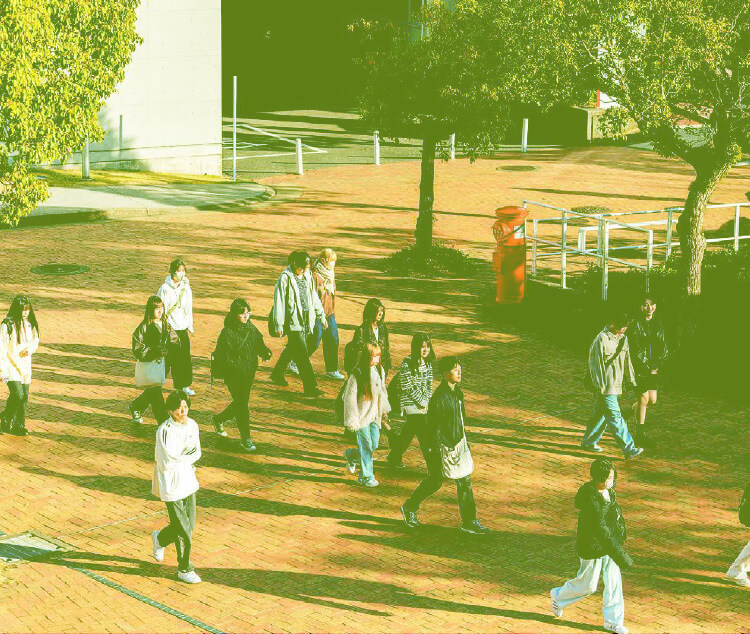Department of Electrical Engineering
Faculty of Science and EngineeringFor those who wish to enroll in 2026
For information on the 2026 curriculum, please see the latest university guide below.
Department News
What is Department of Electrical Engineering?
You've never seen it. You can't even imagine it. Creating it is electrical engineering.
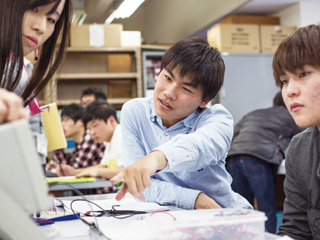
The goal is to become researchers and engineers who will change the world 20 years from now. In order to realize the safe, secure, disaster-resistant next-generation "smart cities" that modern society demands, the Department of Department of Electrical Engineering is working on amazing applied research such as "energy creation" using clean hydrogen fuel cells used in next-generation fuel vehicles, "energy saving" using home appliances that make full use of highly efficient power conversion, "energy storage" using wireless power supply systems that allow charging without connecting cables, and "communication" using next-generation 5G communication technology and next-generation visible light communication technology that transmits information from everyday lighting.
Admission Policy
- 01
- People interested in electrical energy, electronic devices, and information and communications
- 02
- Those who are highly motivated to acquire specialized knowledge in electrical engineering fields and are actively engaged in acquiring skills and techniques.
- 03
- Those who wish to contribute to the local community by appropriately utilizing the results of their learning in the electrical engineering field.
Characteristics of the Department
01The only one in Kyushu where you can obtain two national qualifications
We are an accredited school for chief electrical engineers and radio operators (long-term training course), and are the only department in Kyushu where students can obtain national qualifications in both electrical and communications through the study of electricity, electronics, and communications.
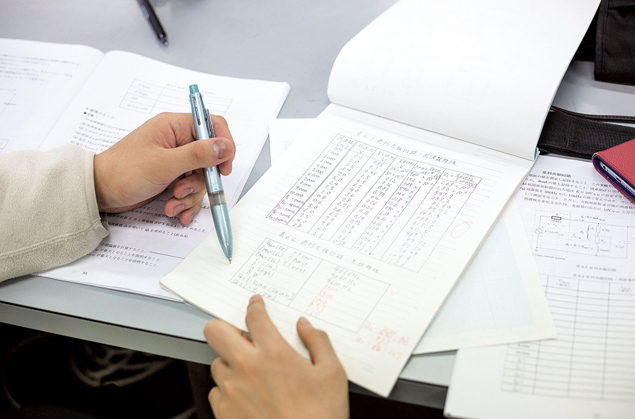
02Creating a prosperous society that is disaster-resistant through electrical, communications, and semiconductor technologies
We will be working on applied research into energy creation using hydrogen fuel cells, energy conservation using highly efficient power conversion, energy storage using wireless power transfer systems, communication using 5G communication technology, and semiconductors that are indispensable to everyday life.
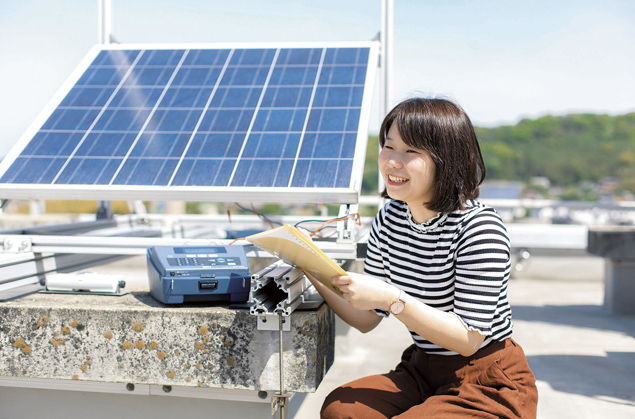
03 Teaching to further your expertise
In order to help children become familiar with "electricity," students will act as teachers and plan and run science classes for elementary and junior high school students. By teaching, students will deepen their specialized skills and knowledge.
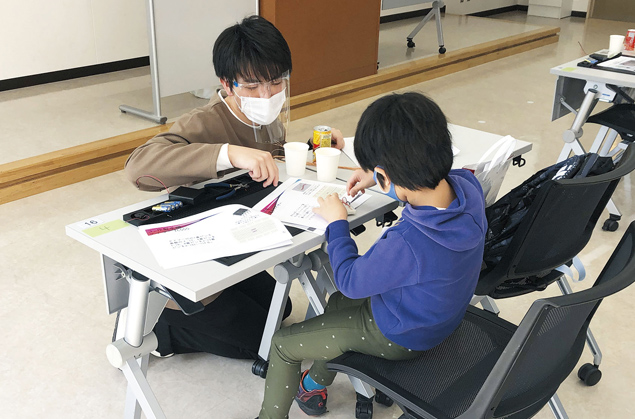
Advanced Program
A motivational support program!
Electrical engineer qualification support program
Students will aim to obtain the national qualification of Electrician (Type 1 and Type 2), which is highly versatile in the electrical industry and provides an advantage in finding employment.
- Regular classes with qualified teachers to help you prepare for written and practical exams
- A fulfilling training environment
- Support system for obtaining qualifications, such as subsidizing half the exam fees
- Out-of-class support tailored to student needs
*There is also the "University/Graduate School Step Support Program."

Four-year learning process
Building the foundations of learning in the first year
In addition to mathematics, physics, and foreign languages, students will learn electrical engineering knowledge and techniques, as well as the basics of programming and computers.
Examples of Department of Electrical Engineering Courses
Linear Algebra I, Introductory Exercises in Electrical and Electronic Engineering, Introduction to Integrated Science and Engineering, Basic Mathematics, Basic Physics, Information Literacy, Basics of Electrical and Electronic Engineering, Electrical and Electronic Mathematics, Introduction to AI, Introduction to Programming, Calculus I, Linear Algebra II, Physics IA, Physics IB, Physics Experiments, Programming Basics I, Electrical Circuits I, Electrical CAD, Integrated Science and Engineering Basics A, Integrated Science and Engineering Basics B, Design Engineering
etc.
In the second year, you will learn the basics of your specialty and take on the challenge of qualifications.
Students will acquire knowledge of electrical and electronic circuits, electromagnetism, etc., and will develop specialized academic ability through both lectures and experiments. They will also have practical training and exercise courses to acquire qualifications, and will strengthen their practical skills.
Examples of Department of Electrical Engineering Courses
Calculus II, Differential Equations, Introduction to Digital Systems, AI Applications, Basic Electrical and Electronic Experiments II, Electronic Circuits IA, Introduction to Industry, Electrical Circuits II, Electrical and Electronic Engineering Exercises, Electronic Circuits IA, Cultivation, Woodworking, Comprehensive Electrical Engineering Exercises, Electronic Circuits IB, Electromagnetism I, Basic Electrical and Electronic Experiments I, Digital Communication Engineering Exercises, Electromagnetism II, Electrical Work Practice, Electrical and Electronic Measurement I, Physics IIA, Control Engineering I, Physics IIB, Logic Circuits, Electronic Circuits IIB, Electrical Circuits III, Introduction to Electrical Energy, Electronic Properties I, Communication Theory, Transdisciplinary Science and Engineering Applications A, Transdisciplinary Science and Engineering Applications B, Transdisciplinary Project I, Transdisciplinary Project II
etc.
Third year: Select a specialty and deepen your understanding
Students will acquire specialized knowledge and skills in each course through a variety of experiments and exercises.
4th year: Activities for the future (employment and further education)
Students will work on their graduation research. Through research activities over the course of one year, they will develop creativity, practical ability, analytical skills, and communication skills, and acquire the ability to contribute to society.
Select a course from the third year
-
Electrical Energy Course
Acquire electrical energy skills and develop human resources who care about the global environment.
Students will learn specialized knowledge about environmentally friendly energy creation, storage, and conservation, as well as the fundamentals of the generation, transmission, and conversion of electrical energy that supports them, and acquire the ability to apply this knowledge in practice.
- Example of lessons
- Project Design Management, Internship, Electrical and Electronic Measurement II, High Voltage Engineering, Electrical Equipment II I, Control Engineering II, Intellectual Property Rights, Electromagnetism III, Engineering Ethics, Electrical and Electronic Engineering Research, Simulation Engineering, Electrical Equipment I, Electrical Regulations and Facility Management, Electrical Engineering Experiments, Power Electronics, Career Guidance, Power Generation and Conversion Engineering, Power System Engineering, Fusion Project III, Graduation Research
-
Semiconductor and Electronic Devices Course
Acquire knowledge of electronic device technology and develop human resources to support the semiconductor industry
Students will learn specialized knowledge about environmentally friendly energy creation, energy storage and conservation, as well as the fundamentals of the materials, electronic properties, electronic devices and semiconductor engineering that support them, and acquire the ability to apply these knowledge to practical work through experiments.
- Example of lessons
- Project Design Management, Electrical and Electronic Measurement II, Internship, Control Engineering II, Intellectual Property Rights, Electromagnetism III I, Engineering Ethics, Electrical and Electronic Engineering Research, Simulation Engineering, Superconducting Engineering, Semiconductor Device Engineering II, Electronic Device Engineering Experiments, Digital Circuits, Integrated Circuits, Fusion Project III, Graduation Research, Career Guidance, Electronic Properties II, Power Electronics, Optical Communication Systems Engineering, Semiconductor Device Engineering I
-
Electronics, Information and Communication Course
Acquire information and communication technology skills and develop human resources to support the information society
Students will learn the fundamentals of electrical engineering, semiconductor engineering, and information technology, as well as the mechanisms of electrical and optical communication systems, and through experiments and practical training will acquire the skills to apply this specialized knowledge to practical work aimed at realizing an information society that is considerate of the global environment and enriches people's lives.
- Example of lessons
- Project Design Management, Electrical and Electronic Measurement II, Internship, Control Engineering II, Communications Law and Facility Management, Wireless Communications Engineering, Fusion Project III, Graduation Research, Intellectual Property Rights, Engineering Ethics, Electrical and Electronic Engineering Research, Career Guidance, Electromagnetism III, Simulation Engineering, Digital Signal Processing, Communication Systems Engineering, Information Networks, Electromagnetic Wave Engineering, Information and Communication Engineering Experiments, Optical Communication Systems Engineering
Class Pickup
Fundamental technologies related to information and communications
Study Widely
Communication Systems Engineering | Professor Yoshiteru Abe
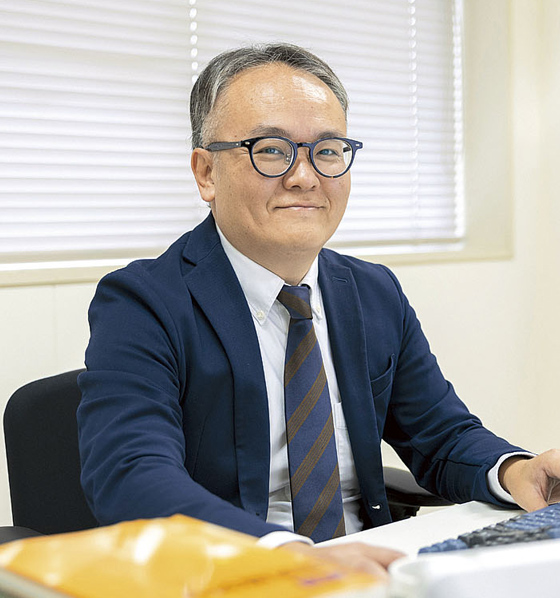
Thanks to advances in electrical and electronic technology and information and communication technology, a high-speed, high-capacity communication infrastructure has been established, and with the spread of high-performance smartphones, we now live in a society where everyone can enjoy a comfortable communication environment. In Communication Systems Engineering, students learn a wide range of fundamental information and communication technologies that realize the current comfortable communication environment. This subject also teaches basic knowledge about the Internet and wired/wireless communication systems, allowing students to learn the basics of current information and communication networks. It is suitable for students who wish to work in the information and communication industry in the future.
From semiconductor manufacturing technology to measurement technology
Learn the basics consistently
Electronic Device Engineering Experiments | Associate Professor Tetsuro Sueyoshi
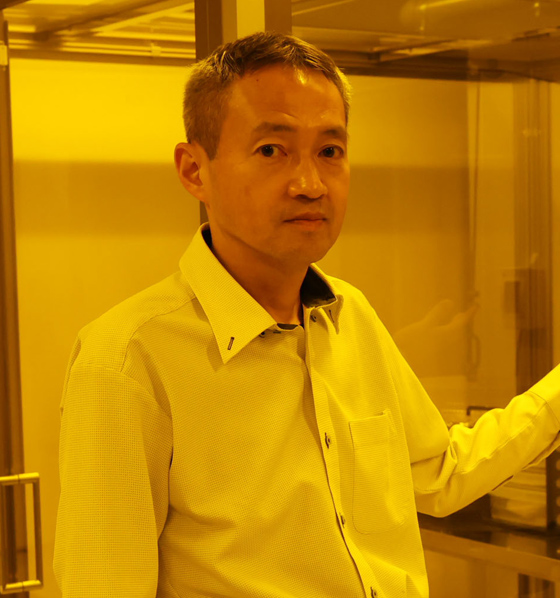
In modern society, electronic devices, primarily semiconductors, are embedded in all kinds of systems and serve as their driving force. In this class, students will learn through experiments the basics of electronic circuits, such as their design and basic principles, and the basics of semiconductors, which are one of the electronic devices that make up electronic circuits. In particular, the semiconductor-related experiments include experiments on vacuum technology and thin-film technology for "creating" and Hall effect for "measuring," allowing students to consistently learn the basics from semiconductor manufacturing technology to measurement technology. This is recommended for students who aim to work in the semiconductor manufacturing industry.
Seminar Pickup
Terukazu Nishizaki Seminar
In research and development of high-performance superconducting materials
Towards a prosperous future society
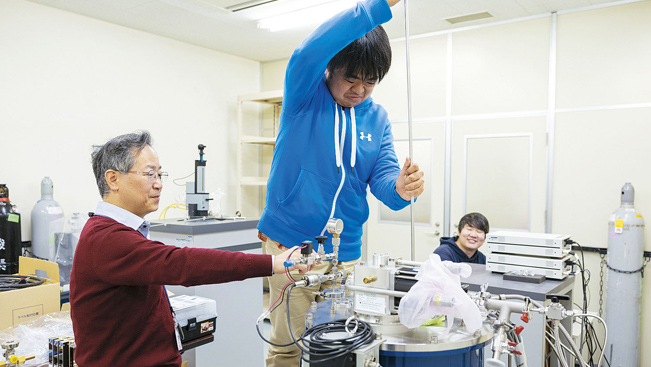
Superconducting materials have special properties not found in other metals or semiconductors, including the property of zero electrical resistance. Superconductivity is a technology necessary for realizing a smart society and improving the performance of medical devices, as seen in its application in MRI imaging diagnostic devices and superconducting linear bullet trains. In our laboratory, we are researching and developing new high-performance superconducting materials that are essential to realizing a prosperous future society by controlling superconducting materials at the nano level.
In my graduation research, I am working on an experiment on a new type of superconductor called a high-entropy alloy. The research facilities are well-equipped, so I recommend this school to those who want to try their hand at cutting-edge research.
Takasuke Ueda, 4th grade
Saga Seiwa High School/Saga
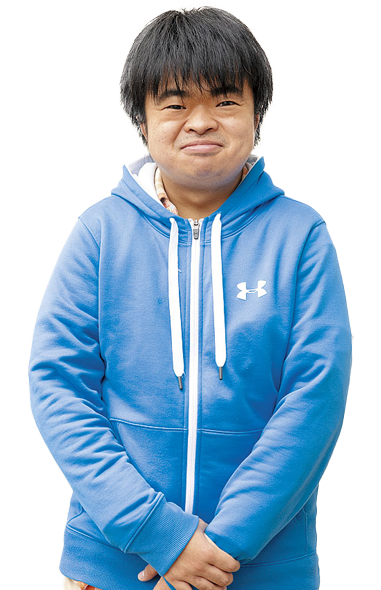
Takuhei Hashiguchi Seminar
Towards achieving carbon neutrality
Creating a sustainable future company
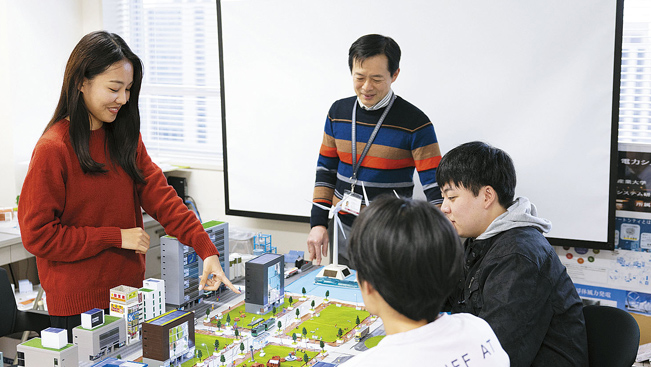
In order to achieve carbon neutrality in smart cities, it is necessary to analyze the supply, conversion, and use of electricity and energy from various perspectives. Therefore, we aim to contribute to the realization of a smart society by investigating and analyzing the energy supply system necessary to realize a rich, safe, secure, and sustainable society, and proposing new energy systems and new possibilities for electricity.
I am conducting research on "concepts for sustainable smart cities," proposing ideal cities of the future based on the results of research into environmentally friendly renewable energy and new electrical technologies.
Kana Yamaguchi, 4th year
Kyushu Sangyo University Kyushu
Industrial High School/Fukuoka

Qualifications and career path data
Qualifications to aim for
- ■ Junior high school teacher license (technical) [pending] ※1
- ■High school teaching license (industrial)
- ■Telecommunications Engineer (Partial exemption from examination subjects)
- ■ Electrician (Exempt from written exam/Type 2) ※2
- ■ Electrical Engineer (practical experience required)
- ■ Construction Supervisor (Partial exemption from exam subjects)
- ■First-class land-based special radio operator (long-term training course) etc.
*1 For those [Under application], the opening date of the teacher training course may be changed as a result of the review by the Ministry of Education, Culture, Sports, Science and Technology. 2 We also support you in passing the exam.
Industry Graph

Main Employment Destinations
Kyushu Electric Power Co., Inc./NTT West Japan (Nippon Telegraph and Telephone West Corporation)/Kinden Corporation/Kyudenko Corporation/Nishi-Nihon Plant Kogyo Co., Ltd./NTT Facilities Kyushu Co., Ltd./Miraito One Co., Ltd./Nippon Densetsu Kogyo Co., Ltd./Hitachi Building Systems Co., Ltd./Toshiba Plant Systems & Services Corporation/Mitsubishi Electric Building Solutions Co., Ltd./Kyoritsu Electronics Co., Ltd./Panasonic EW Engineering Co., Ltd./Nippon Steel Tex Engineering Co., Ltd./(Sumitomo Mitsui Construction Co., Ltd./Sumitomo Densetsu Co., Ltd./Secom Co., Ltd./Fukuoka City Hall/Fukuoka Prefectural High School Teachers Japan Semiconductor Co., Ltd./ROHM Aboro Co., Ltd.)Kumagai Gumi
Graduate Interview
Yasuki Hatanaka
Izumi High School/Kagoshima
- Employment
- Kyushu Electric Power Co., Inc.
As I learned more about how electricity is generated and delivered to us, my desire to work in the power industry grew stronger. I also met alumni during my job search and received advice, which was very reassuring.
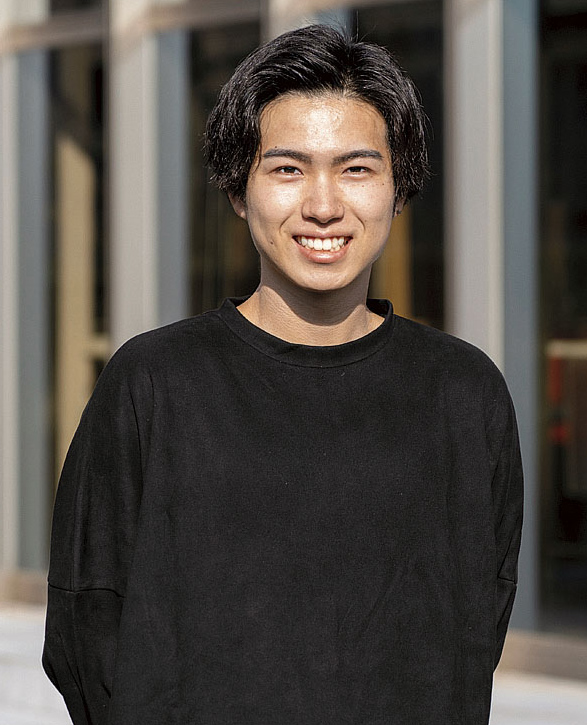
Mr. Masataka Yamazaki
Kyushu Sangyo University Kyushu Sangyo High School/Fukuoka
- Employment
- Kinden Co., Ltd.
At university, I was able to deepen my specialized knowledge through various experiments and research on electricity. I also came to think that I want to use this as my strength in my work. I would like to gain experience as a member of society and grow as a person.
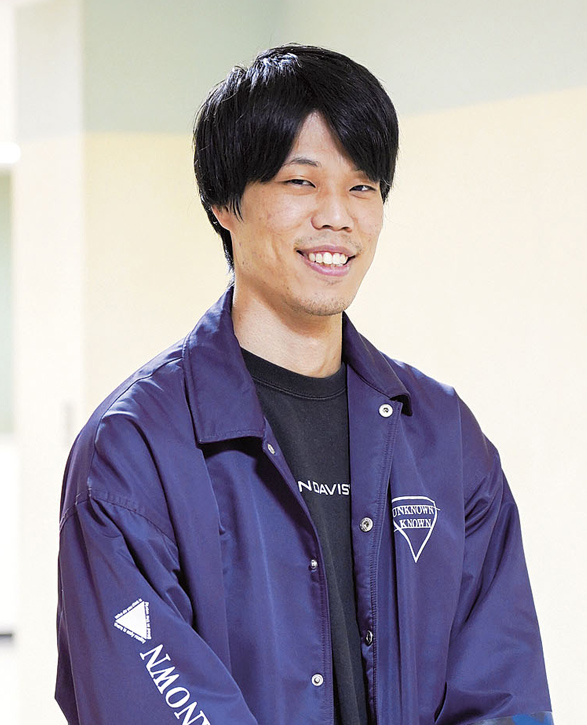
If you cannot view PDF files, please download Adobe Reader.

